The Government of Mongolia, in partnership with the World Health Organization (WHO), conducted its second Joint External Evaluation (JEE) to assess national capacities and capabilities in relation to the International Health Regulations (2005) (IHR) from 17 to 24 November. The first JEE was undertaken in 2017 and it was used as a basis for strengthening health security preparedness and response capacities in the country.
The COVID-19 pandemic tested Mongolia’s health security systems. This second JEE will build upon lessons identified during the pandemic. Recommendations from the JEE will guide the development of the country’s National Action Plan for Health Security — emphasizing a whole-of-government, multi-hazard approach towards public health emergency prevention, preparedness, readiness, response, and resilience.
JEEs provide a framework to support countries to assess, strengthen, maintain, and advance national capacities required by the IHR for ensuring rapid detection, verification, and response to public health risks.
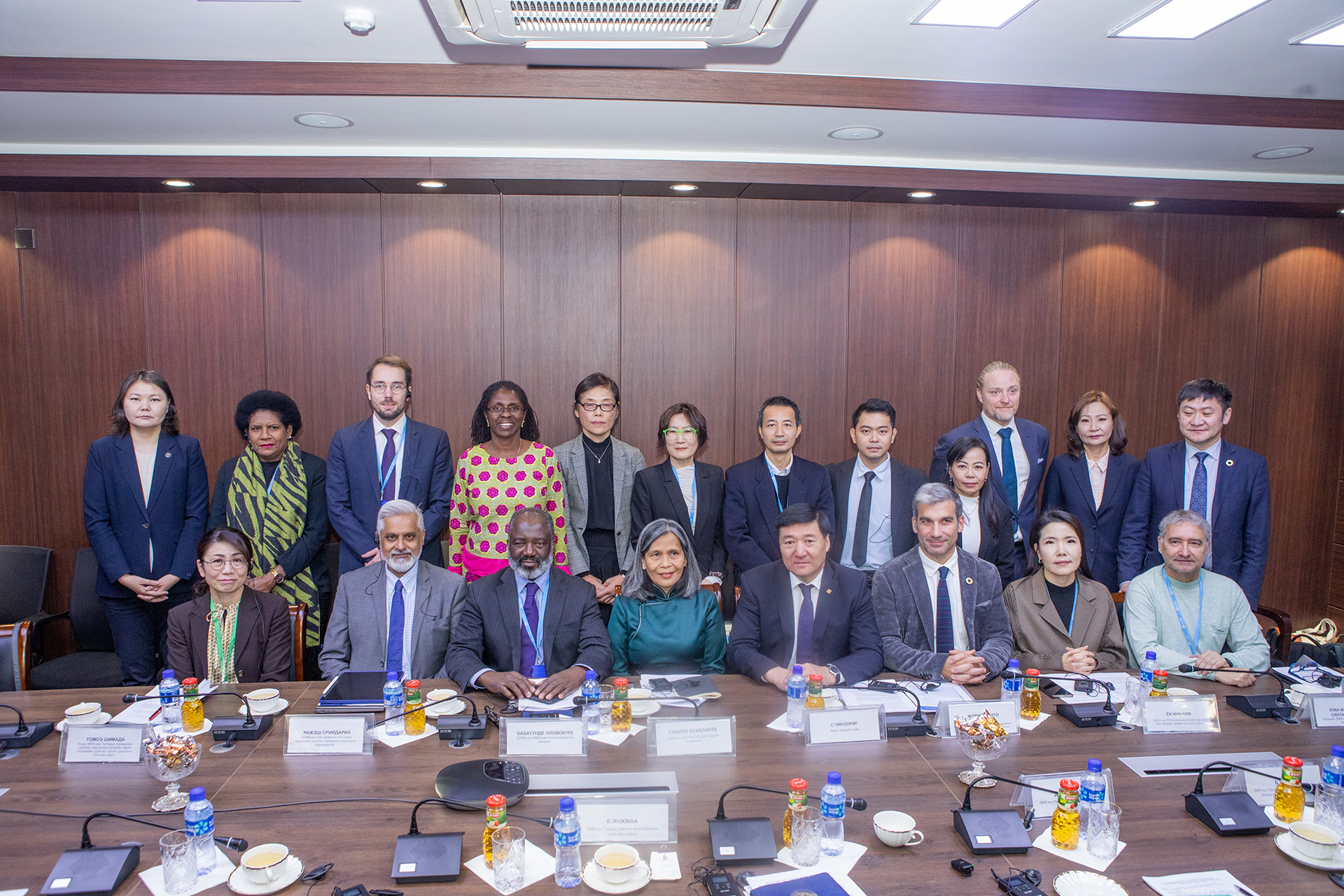
Joint External Evaluation team debriefing with Hon. Chinzorig Sodnom, Minister of Health, Mongolia, on 24 November 2023. Photo credit: WHO Mongolia
Highlighting the value of conducting JEEs, Hon. Chinzorig Sodnom, Mongolia’s Minister of Health, said: “Results from the first JEE were used to update and improve upon the country’s National Plan for Emerging Infectious Diseases and Public Health Emergencies — enabling a better response during the COVID-19 pandemic. Because of early preventive measures we were able to save lives, keep health systems functioning, and achieve vaccination coverage of high-risk groups like the elderly, healthcare workers, and people with comorbidities during the pandemic.”
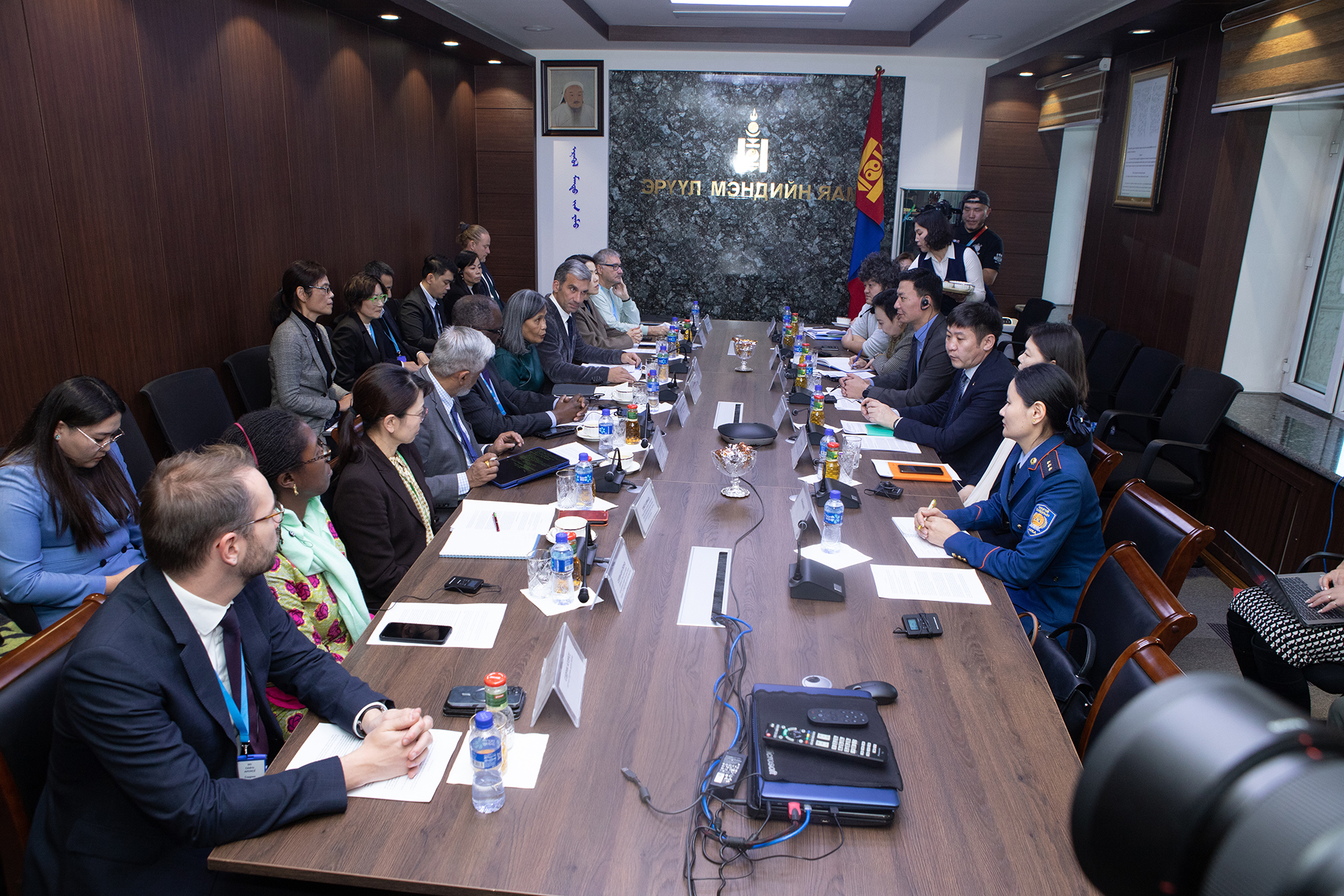
Joint External Evaluation team debriefing with representatives from the State Emergency Commission’s Office and Deputy Prime Minister’s Office, Mongolia, on 24 November 2023. Photo credit: WHO Mongolia
The recent Joint External Evaluation in Mongolia leveraged the combined insights and expertise of national and external stakeholders to assess health security capacities in 19 technical areas and identify scope for improvement. The JEE was led by health security experts Dr Babatunde Olowokure, WHO’s Regional Emergency Director for the Western Pacific, and Dr Jorge Pinto Ferreira, Food Safety Officer for the Food and Agriculture Organization. They worked alongside Hon. Chinzorig Sodnom, Minister of Health of Mongolia, other representatives from the Government of Mongolia, and external technical experts who were selected in close consultation with the WHO country office.
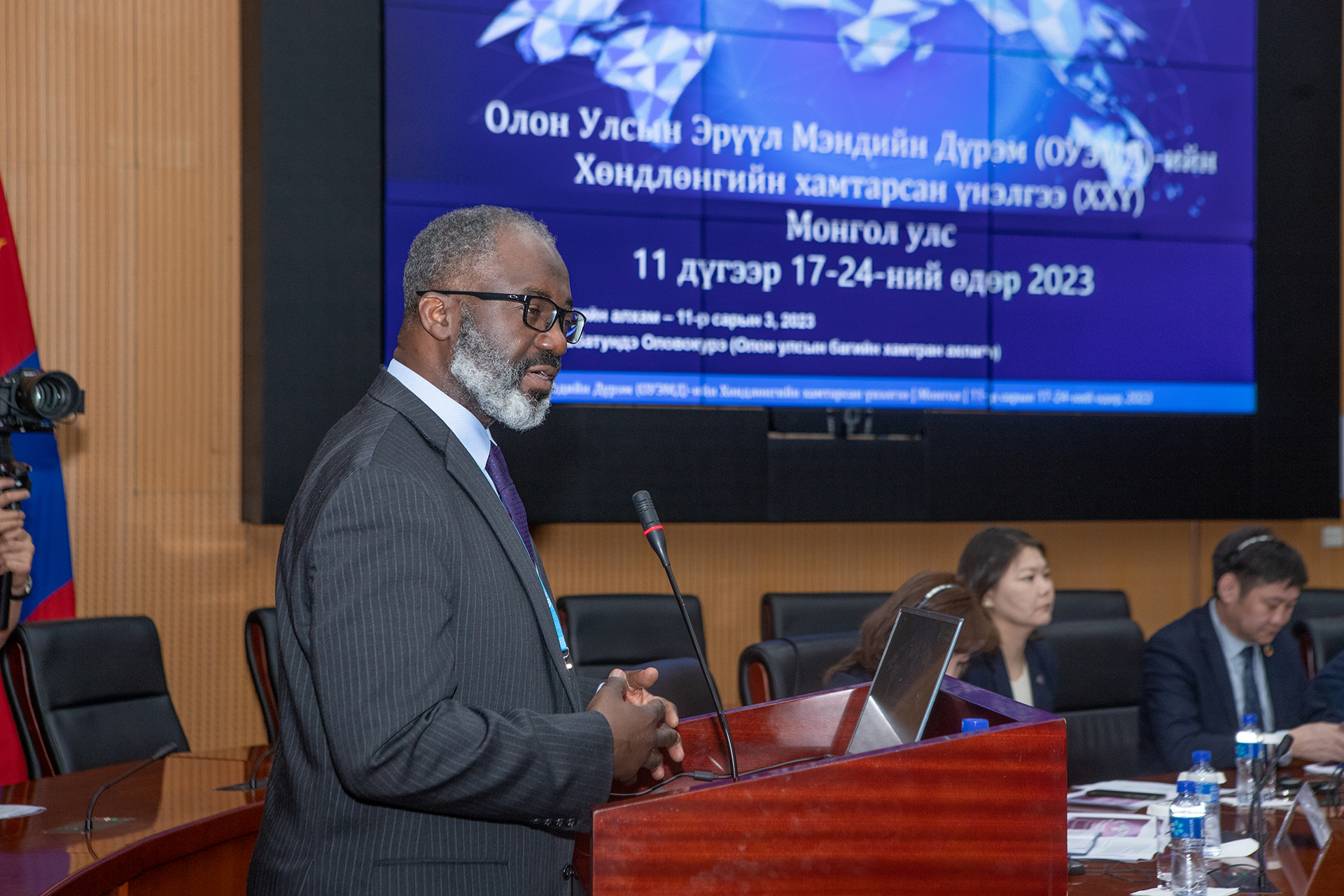
Next steps by Dr Babatunde Olowokure during “Feedback and closing session for Ministries, agencies, multisectoral stakeholders, and partners”, on 24 Nov 2023. Photo credit: WHO Mongolia
“The whole-of-government commitment that Mongolia has demonstrated during this Joint External Evaluation will ensure that findings translate into actions to build a more resilient national health security system, and align with guidance under the recently endorsed Asia Pacific Health Security Action Framework,” said Dr Babatunde Olowokure, WHO Regional Emergency Director for the Western Pacific and JEE Team Co-lead. “The Framework guides Member States on how to plan comprehensive health security systems that encompass the core capacities of the International Health Regulations, as well as multisectoral health security capacities needed to strengthen resilience to public health threats of the future, taking a One Health approach.”
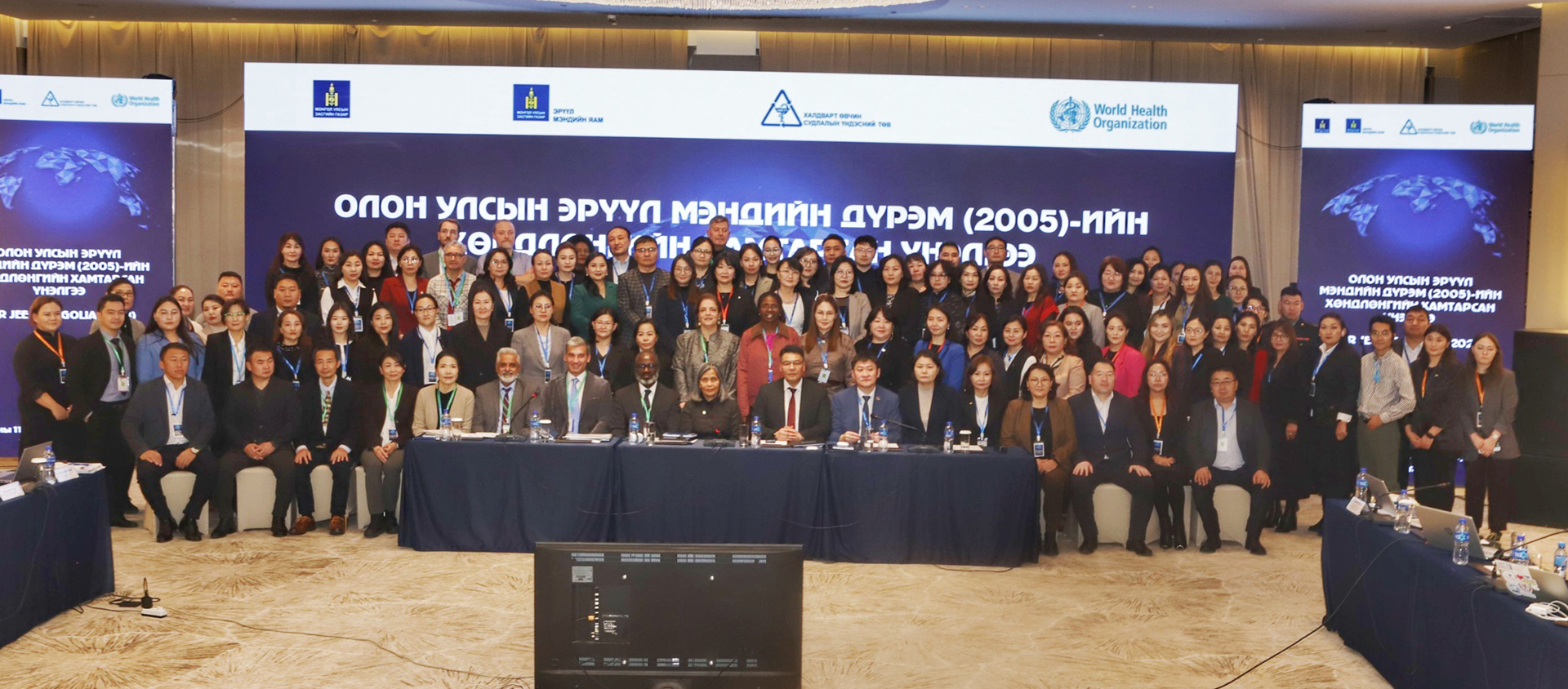
National and international teams' joint discussion on IHR core capacities’ technical areas on 21 Nov 2023. Photo credit: WHO Mongolia
Cross-cutting opportunities to advance health security in Mongolia
The JEE provided an opportunity for the Government of Mongolia to identify the most urgent needs for building a health security system which is resilient and enables better coordination among sectors, particularly during public health emergencies and outbreaks. Three key recommendations that emerged from the JEE address cross-cutting opportunities to advance health security capacity in Mongolia.
- Establish a multi-sectoral committee to implement recommendations of the National COVID-19 Review.
- Map and review Mongolia’s One Health landscape and design a comprehensive plan for action.
- Develop and implement an adequately resourced, risk-informed national plan for health security.
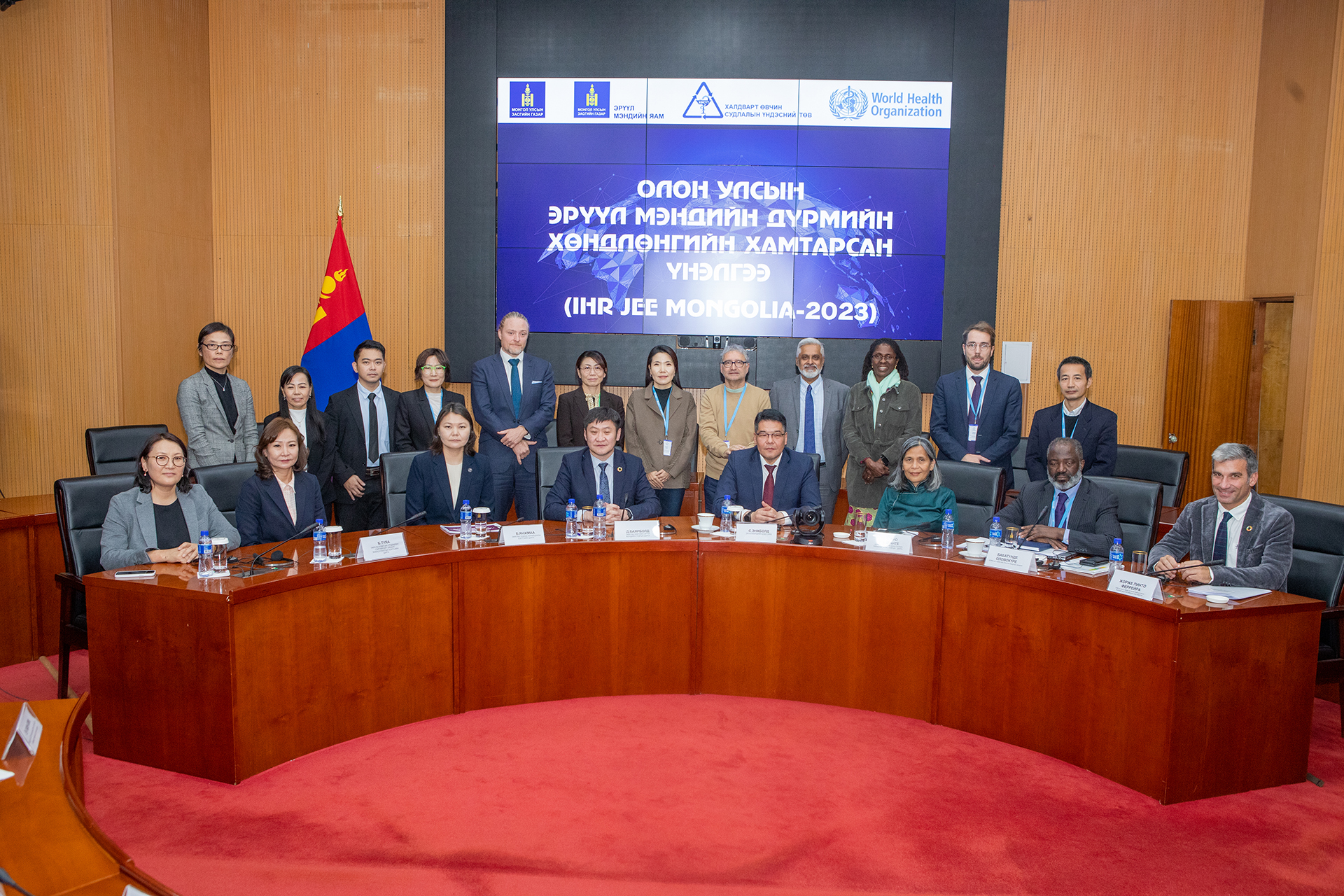
Feedback and closing session for Ministries, agencies, multisectoral stakeholders, and partners, on 24 Nov 2023. Photo credit: WHO Mongolia
Crediting advancements in health security, WHO Representative to Mongolia, Dr Socorro Escalante, said that strengthening capacity of the country is a part of Mongolia’s Vision 2050. “Mongolia mounted a strong response during the COVID-19 pandemic, but like most other countries, its systems were tested. This JEE is very timely, enabling reflection on those lessons and an opportunity to recast its systems along the prevention, preparedness and response continuum.”
Mongolia’s commitment to advancing health security is evident in the country’s early and sustained participation in the JEE process, annual reviews of the progress in implementing the IHR (2005), regular revisions of the national Plan for Emerging Infectious Diseases and Public Health Emergencies, and the conduct of simulation exercises and after-action reviews. As a result, the country continues to make progress towards meeting the IHR (2005) requirements and strengthening its health security capacities and systems.
Media contacts:
Ministry of Health Mongolia
Enkhzul Togtokhbayar, Communication officer, Ministry of Health Mongolia, enkhzul.t@moh.gov.mn, 96121060
WHO Mongolia office
Uran-Ulzii Mandakh, WHE team associate, WHO Mongolia, uranulziim@who.int
